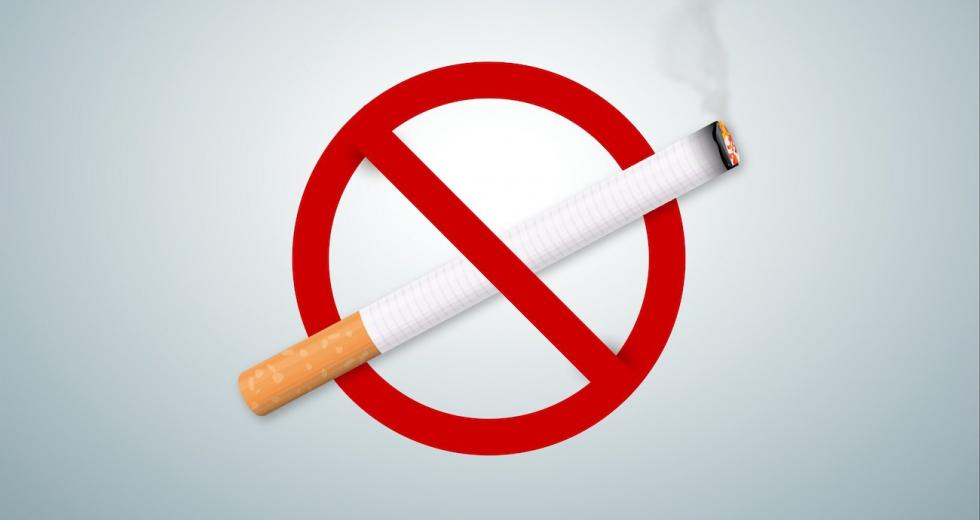
The only other thing that I will eternally thank you for in the South West, is that one of you gave me the definition of the word Partnerships. 'The sublimation or the suppression of loathing in the pursuit of funding'. An expression that I am eternally grateful to you for, quite wonderful. - Common Purpose leader Julia Middleton speech, given in the South West England Region, 2007

I am confident that most readers will be stunned by Middleton's grateful acceptance of such an unorthodox definition of the term 'Partnership'. Isn't the more usual definition of 'Partnership' that of 'a legal contract entered into by two or more persons in which each agrees to furnish a part of the capital and labour for a business enterprise, and by which each share a fixed proportion of profits and losses'?
The only realistic prospect of explaining such a difference of interpretation of such a simple term will most probably be consequential to a more detailed examination of the activities of Common Purpose Graduates in relation to their individual and collective roles within UK society.
In previous parts of this investigative journey we have explored the architecture of the new system of Global Governance and the importance to that system of networked civil society NGO's and Partnerships. Funding for such networks being conditional upon them collectively pursuing policies linked to Agenda 21. Common language linking the documents that we have already examined include: Millennium Development Goals, Common Purpose, NGO's, Stakeholders, Partnerships, Networks, Diversity.
In this article we will use Global Tobacco Control as a case study in order to explore the practical application of the new system of World Governance. The starting point for our journey is the WHO Seventh Futures forum on unpopular decisions in public health.
The World Health Organisation: Launching Unpopular Public Health Decisions
The Seventh Futures Forum on unpopular decisions in public health concluded that
Public health decisions often create strong public resistance from the people who do not expect to benefit from them. Yet making and launching unpopular decisions is everyday business for top-level-policy-makers in public health. The Seventh Futures Forum of High-level Decision-makers therefore aimed to develop tools for making such decisions more acceptable and popular. The Futures Forum based its discussions on practical issues from countries, encompassing ... the introduction of smoking bans in workplaces, measures to reduce harm from alcohol consumption and user charges for health care.
Examination of the linked pdf document tells readers that
[t]he Futures Fora are a series of meetings for decision makers ... The Fora apply the Chatham House Rules to ensure confidentiality.
Similarly, the Organisation Common Purpose tells us that it employs the Chatham House rule meaning that
participants are free to use the information received but that neither the identity nor the affiliation of the speaker(s), nor that of any other participant may be revealed.
In this article we will be primarily focussing on Global Tobacco control and looking at the blueprint for global action, the legal framework, the International and UK partnerships and the role being played behind the scenes by Graduates of the International Leadership Organisation: Common Purpose.
Tobacco Control-The Blueprint For Global Action
Readers may be unaware that at New York's 1975 World Conference on Smoking & Health, Antismoking activists were told, by British delegate Sir George Godper that to eliminate smoking it would first "be essential to create an atmosphere in which it was perceived that active smokers would injure those around them, especially their family and any infants or young children". The Passive Smoking myth was ideal for this purpose. This so-called Godper blueprint, that advocates an incremental / salami slicing technique can also be seen in action in relation to the denormalisation of alcohol and also in the Global Climate Change fraud. In each case there is every reason to suspect that the policies solidified first and that it is these policies that have been leading the scientific evidence ever since.
Global Tobacco Control Is Official UN Policy
The following quotations are provided in order that readers can be in no doubt whatsoever that Global Tobacco Control is directly associated with the United Nations Agenda 21 and the Millennium Development Goals.
Official UN Documents tell us that 'Tobacco use has a adverse impact on health, poverty, malnutrition, education and the environment. Consequently, tobacco control has to be recognized as a key component of efforts to reduce poverty, improve development and progress towards the Millennium Development Goals. Tobacco control needs to be included in the programmes of countries working on achieving the MDG's". - UN Secretary report on Tobacco Control, July 2004.
We are also informed that 'Tobacco farming and curing are not kind to the environment: they cause deforestation due to land clearance for tobacco cultivation and, in many countries, farmers use wood for the fires and smoke used to cure the tobacco leaves, and to build the barns in which the leaves are cured, through forest removal, contributing to adverse climate changes, such as droughts ... Cigarette butts are the most common items of litter on earth.' Quoted from MDG 7, Ensure environmental sustainability @ pages 73 & 74 of The Millennium Development Goals & Tobacco Control - An Opportunity For Global Partnerships.
In other words, reducing / eliminating tobacco consumption will help to minimise climate change and also help protect the environment.
Is There A Link Between Lobbyists In The Health And Environmental Movements?
Yes there is. Remi Parmentier, Political activist and founding Member of environmental Group Greenpeace International, was engaged by UK Charity ASH (Action on Smoking & Health) as a Consultant. Within his work Tobacco Control: don't trade away public health, 8 March, 2003 he wrote:
'When I responded to a request from friends in the tobacco control community to attend last week’s World Health Organisation (WHO) negotiations for the Framework Convention on Tobacco Control (FCTC), I thought I would be in for an easy – albeit interesting – ride. But I was wrong.
Friends in the environmental and social justice movements wondered what I was doing taking on such a ‘soft’ issue as smoking, an issue of ‘individual choice’ which could hardly be considered one of the more pressing issues of the day. But I quickly came to learn that the negotiations around the Tobacco Convention epitomise all of the same dynamics which I’d faced the year before in the run-up to the World Summit on Sustainable Development'.
The Legal Framework Of Tobacco Control
Global Tobacco Control Legislation can be traced to the WHO Framework Convention on Tobacco Control which is the first World Health Organisation Treaty adopted under Article 19 of the WHO Constitution. The updated status of the WHO FCTC indicated that the European Community signed the Convention of 16th June 2003 and formally confirmed it on 14th June 2004. On 2nd June 2004 EU Council Decision (2004/513/EC) concerning the conclusion of the WHO FCTC was signed and can be viewed here.
The case of Entick v Carrington [1765] EWHC KB J98 is a leading case in English law establishing that
‘the state may do nothing but that which is expressly authorised by law, while the individual may do anything but that which is forbidden by law’.
The smoking of tobacco products in enclosed and substantially enclosed public places in England & Wales was introduced as a consequence of the Health Act 2006.
Section 7 (2) states: "A person who smokes in a smoke-free place commits an offence."
Section 2 (4) states: "premises are smoke-free only in those areas which are enclosed or substantially enclosed."
Section 4 (1) states: "The appropriate national authority may make regulations designating as smoke-free any place or description of place that is not smoke-free under section 2. ….The place, or places falling within the description, need not be enclosed or substantially enclosed."
What is the appropriate national authority? If we turn to Section 82 it states:
(1) In this Act the appropriate national authority means
(a) in relation to England, the Secretary of State, and
(b) in relation to Wales, the National Assembly for Wales;
Reference should also be made to the Smoke-free (Exemptions and Vehicles) Regulations 2007.
• Regulation 2 of the aforementioned exemptions says:
2. The exemptions in this Part apply only to premises that would be smoke-free under section 2 of the Health Act 2006 if those exemptions had not been made.
• Regulation 3 says:
3.—(1) A private dwelling is not smoke-free except for any part of it which is—
(a) used in common in relation to more than one set of premises […]; or
(b) used solely as a place of work […]
In a nutshell, this means Section 2 of the Health Act does not apply to private dwellings.
Model Legislation for Tobacco Control
The 225 page volume Model legislation for tobacco control: A policy development and legislative drafting manual, produced by the International Union for Health promotion and Education, demonstrates ‘beyond reasonable doubt’ that the legislation and regulations are not, as claimed by MPs at Westminster, the work of a British Parliament.
According to the front page of the manual it was also available to download from http://www.fctc.org (Framework on Tobacco Control) and the First Edition was published in 2004
It is a long read but it does tell us that those measures that successive British Governments have announced as THEIR policies are nothing of the sort.
The manual provides options for the actual language that can be used for the drafting of tobacco control legislation or regulations.
Examples of proposed measures are found on the following pages of the manual
Page 34 - Prohibiting smoking in public places
Page 42 - Advertising, sponsorship and other forms of promotion
Page 50 - Tobacco product labelling and packaging to include health messages and picture on packets
Page 60 - Prohibition of sales to those under 18 years of age
Page 76 - Anti-smuggling measures
Page 96 - Public education and awareness campaigns
Page 102 - Control measures that belong in other laws (Taxation) [Includes the prohibition of duty free sales]
Page 110 - Content, design and placement of NO SMOKING signs
Page 122 - Template for Content, design and placement of messages and constituents and additives disclosures on / in tobacco product packages
Page 166 - Extract legislative text
Page 177 - Prohibition on smoking in enclosed public places
Page 178 - Obligations upon owner to ensure that no person smokes in any enclosed public place
Page 186 - Prohibition of public displays of tobacco products
Page 186 - Prohibition of vending machines, Internet and certain other sales of tobacco products
One wonders how many other ‘behaviors’ have been analysed and identified for future regulation and control in a similar way?
The World Health Organisation (WHO) - Tobacco Atlas (first edition, 2002)
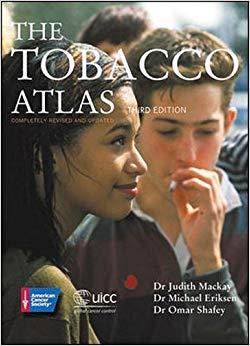
Examination of the Tobacco atlas reveals predictions that
• Cigarettes to only be available in rich countries.
• The tobacco industry is fully regulated, with licensing of nicotine as an addictive drug, and manufacture, promotion and sale under strict regulatory control by government agencies.
• Cigarette packets will be plain black and white and contain only brand name and explicit health warnings.
• Doubts about new “less hazardous” products increases (sic).
• Tobacco control funded from a percentage of tobacco tax in many countries.
• Vaccine produced to switch off nicotine receptors.”
The Tobacco Atlas Foreword was written by Gro Harlem Brundtland.
The Influence Of Gro Harlem Brundtland On Tobacco Control
This is what Gro Harlem Brundtland, MD Director-General, World Health Organisation had to say about WHO and NGO Partnerships for Global Tobacco Control at the INGCAT International NGO Mobilisation Meeting in Geneva, 15-16 May, 1999:
The obvious question now is -- what role do NGOs play to help the [Global Tobacco Control] process? As we see it, the primary role of NGOs is to establish networks, formulate expectations from Member States (as well as from the WHO), provide technical expertise on issues, and monitor and expose abuses.
Quite clearly it had already been planned that the NGO's would act as the 'eyes and ears' of the World Health Organisation prior to the implementation of the legislation by Member States
Readers may also recall that Gro Harlem Brundtland had been invited by the United Nations Secretary-General Javier Pérez de Cuéllar to establish and chair the World Commission on Environment and Development (WCED), widely referred to as the Brundtland Commission. This commission published its report in 1987 entitled Our Common Future and was the precursor to the Rio Earth Summit which gave rise to Agenda 21. Brundtland is a member of the Club de Madrid. She is also a member of the Elders.
Global Partnerships In Tobacco Control
These include Globalink - 'The International Tobacco Control Community' and The Global Smokefree Partnership which describes itself as 'a multi-partner initiative formed to promote effective smokefree air policies worldwide'.
The Framework Convention Alliance describes itself as 'a civil society alliance ....It is made up of over 350 organisations from 100 countries working on the development, ratification and implementation of the International Treaty, the World Health Organisation's Framework Convention on Tobacco Control (FCTC).
European Networks In Tobacco Control
The European Network for Smoking and Tobacco Prevention describes itself as 'an international non-profit making organisation....aiming to create greater coherence among smoking prevention activities and to promote comprehensive tobacco control policies at both national and European levels'. Its’ partners in the United Kingdom network with UK organisations such as Action on Smoking & Health (ASH), FRESH Smoke-free North East & Cancer Research UK (CRUK).
UK Tobacco Control Partnerships
My initial research uncovered three partnerships who had responded to the EU Commission Green paper: Towards a smoke free Europe. These were Cheshire and Merseyside Tobacco Alliance, Smokefree Norfolk Alliance and Smokefree Bristol Alliance. Their green paper responses are linked here. Cheshire & Merseyside - Norfolk Alliance - Bristol Alliance
These three partnerships are found listed alongside many other organisations who are listed as members of The Smokefree Action Coalition. These include, for example, Action on Smoking & Health (ASH), The Association of Directors of Public Health and Cancer Research UK (CRUK). The FRESH NorthEast website itself links to another 12 Tobacco Control Partnerships.
The Coventry Partnership & Common Purpose
The Minutes of the Coventry Partnership Business Group Meeting (June 2008) provide us with another link between Common Purpose and unelected Partnerships. In this meeting presentations were given on Alcohol Harm Reduction and Smoking with the group agreeing that healthier lifestyles should be promoted as a general issue rather than addressing smoking and alcohol separately. The minutes recorded that among those present was Faye Williams, Common Purpose, whilst apologies for absence included the name of Louise Teboul, also of Common Purpose. This prompts the questions: What are members of a leadership training organisation doing attending such meetings? What is the lawful authority of this partnership to have meetings behind closed doors and seek to interfere with the individual's lifestyle choices?
Is it also just a coincidence that the name of Educational Charity Common Purpose appears on the list of consultees for a review of Northern Ireland's Liquor Licensing laws?
Tobacco Control And Fake UK Charities
With a programme underpinned by an endless supply of junk science tobacco control has become a growth industry. UK Tobacco enthusiasts have witnessed the rise of the classic fake charities such as ASH (Action on Smoking & Health). Examination of their accounts for 2008/9 reveal that ASH received £191,000 from the Department of Health, £339,120 from supporting charities and £65,242 from ASH (International) part funded by Pfizer). It received just £16,332 from voluntary donations. Additionally, in 2003, CRUK (Cancer Research UK) were given two and a half million pounds by the Department of Health to develop anti-smoking campaigns. Here is CRUK's consultation response to the DOH on the Future of Tobacco Control, 2008.
UK Tobacco Control And Common Purpose
In 2004, three years before the introduction of the UK Smoking Ban, it was reported that 'Leaders in Merseyside's Civil, business and community sectors who formed the 100-strong Common Purpose Group met to share a debate on a smoke free Liverpool before casting their final vote'. I am sure that readers of this article are equally appalled to learn that Common Purpose Graduates were lobbying the British Government on behalf of Global Governance and thereby misrepresenting public opinion.
Although Common Purpose are themselves keen to emphasise that they are a training organisation the Document lodged on the SmokeFree Liverpool website indicated that 'Common Purpose is a campaigning organisation [and that] since 1989 more than 60,000 people have been involved in Common Purpose and over 16,000 leaders from every area of the UK have been involved in one or more of its' programmes'.
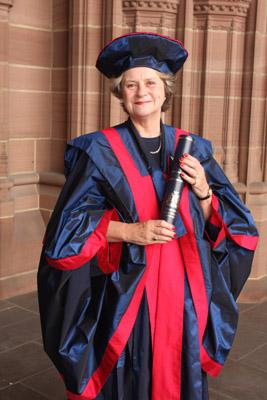
I wonder if Rosemary Hawley, was one of the 100 strong Merseyside Common Purpose group. I ask this question simply because, not only is Ms Hawley described as Chair of Knowsley Primary Care Trust and a Committee Member of Mersey Common Purpose, she is also a Magistrate. I would be very interested in learning if she declares her interests prior to hearing any cases concerning breaches of the Health Act 2006 (smoking in public places) or The Clean Neighbourhoods and Environment Act (Smoking related litter) especially in view of the fact that in the 'Fifth Annual report of Knowlsey PCT' she wrote:
The PCT has recognised that unless smoking is addressed, and the numbers of people smoking in the borough significantly reduced, the improvements required in health and well-being to make Knowlsey's health equal to the rest of the Country will never be achieved. ......This report takes smoking as its' theme, and will explain how we have begun this process in 2006/7.
UK Government discovered consulting with itself in relation to tobacco display bans
The Telegraph reported in January 2009 that Government are 'fixing health consultations with taxpayer funded groups. Within this article it was reported that:
Alan Johnson announced that the display of cigarettes and tobacco in shops would be banned in England & Wales from 2011. Mr. Johnson boasted that the display ban was favoured by an "overwhelming majority" of 96,000 responses to a six-month public consultation on the subject.
This seems very convincing but what else did the Telegraph article tell its readership?
Only a handful of those 96,000 respondents came from individuals submitting their personal views. Almost 70,000 came from those collected by pressure groups entirely funded by the Department for Health. Among the groups submitting block responses were SmokeFree North-West, SmokeFree Liverpool and SmokeFree North-East, which were all set up by the Government to lobby against the Tobacco industry. The finding has prompted critics to accuse the Government of spending taxpayers money on establishing groups designed merely to back the Government's line on Public Health issues. Ministers have been accused of astroturfing - cultivating a fake grassroots movement in order to make a position more popular than it really is.
Doesn't such a deception of the public by skewing public consultations in this manner clearly suggest a deliberate use of such fraudulent techniques in keeping with 'the making and launching of unpopular decisions for top-level-policy-makers in public health', as described in the WHO Futures forum?
Tobacco Control, SmokeFree North-East & Common Purpose
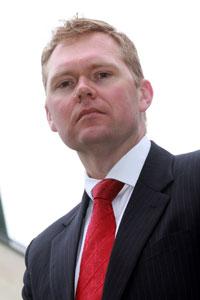
Newcastle City Councillor Nick Forbes is Chair of the regional advisory group for tobacco. Nick is also Chief Executive of Community Action on Health, a leading charity in Newcastle that aims to promote patient and public involvement in health and social care. He is also a graduate of Common Purpose and served as Vice-Chair of FRESH - the campaign for a Smoke Free North East. In separate research we were able to reveal that Nick Forbes, launched the Newcastle Fairness Commission at the State of the City event in July 2011.
Kevin Rowan is Regional Secretary of the Northern TUC, representing some 69 trade unions and half a million trade union members in the Northern Region. Rowan is Chair of Equality North East, a Member of the Local Equality and Diversity Board Northumberland LSC and the Regional LSC Equality and Diversity Steering Group. He is also a member of Fresh - North-East; the campaign for a smoke free north east.
I also wonder if the following individual was also involved in the 'skewed public consultation' in relation to the Governments proposal to ban tobacco displays.

Debbie Coulter, 2002 graduate of the Common Purpose programme, former Deputy General Secretary of the GMB Trade Union, a general workers' union with almost 650,000 members working in both public and private services.
Tobacco Control And Public Health Directors And Assistant Directors
We have previously established the fact that the Association of Directors of Public Health are members of the Smokefree Action Coalition. Here are just a few examples of those Directors who just happen to also be graduates of Common Purpose.

Dr. Mahmood Adil, Deputy Director of Public Health for the North-West. He is a Common Purpose 20: 20 graduate, Fellow of the Royal College of Physicians and Associate of the Nuffield Trust.
Kate Adern, Director of Public Health, South Liverpool Primary Care Trust, Liverpool - Common Purpose Matrix 1999.
Daniel Seddon, Director of Public Health and Health Strategy, Halton, Merseyside - Common Purpose Matrix 2005.
Salma Ali, Director of Nursing, Heart of Birmingham Teaching Primary Care Trust - Common Purpose Matrix 2004.
Daniel Seddon, Director of Public Health and Health Strategy, Halton, Merseyside - Common Purpose Matrix 2005. In his most recent profile he points out that
One of the biggest highlights of my career has been seeing the ban on smoking in public places introduced in England. As Director of Public Health in Halton I remember asking our MP to make sure he voted for it in parliament!
Further evidence of the 'behind the scenes' role of Common Purpose is provided by reference to the Doncaster NHS Leadership & Talent Management Strategy 2009 - 2011. For example, on page 9, it described the building of Strategic Alliances via Common Purpose programmes: Focus, Profile, Navigator and 20: 20. On Pages 26 & 27 it tells readers that Focus is for Directors and Assistant Directors, Profile is pitched at Director level and above, Navigator being for Clinicians and GP's and 20: 20 being aimed at Chief Executives and Deputy Chief Executives.
Let’s quickly look at the sphere of influence of one more senior Common Purpose member before moving on to examine some of the strategies being employed to ensure that national democratic processes are undermined and dissenting voices effectively silenced.
Deborah Jenkins OBE previously worked for the Industrial Society and was co-founder and European Director of Common Purpose. She was a non-executive Director of NHS North East Strategic Health Authority, Chair of Newcastle City Health Trust Board & Chair of the Newcastle Healthy City project, and Vice Chair of the Mental Health Act Commission. She is now Chair of South Tees Hospitals NHS Trust and Chief Executive of the Derwent Initiative, a national charity which promotes an inter-agency response to sexual offending, where she works alongside Sue Kennedy, Head of Operations and former Southwest Regional Director with Common Purpose.
Healthy Cities & Urban Governance
The WHO Healthy Cities programme engages local governments in health development through a process of political commitment, institutional change, capacity building, partnership-based planning and innovative projects. It promotes … a special emphasis on health inequalities and urban poverty, the needs of vulnerable groups, participatory governance and the social, economic and environmental determinants of health.
Over 1200 cities and towns from more than 30 countries in the WHO European Region are healthy cities. These are linked through national, regional, metropolitan and thematic Healthy Cities networks.
Examination of the Newcastle Healthy City project reveals that Newcastle is affiliated to the World Health Organisation and since 1998 has been an official member of the International WHO Healthy City Network (WHO European Healthy Cities). Here’s the United Kingdom of Great Britain & Northern Ireland page. Here’s a little infographic from their website.
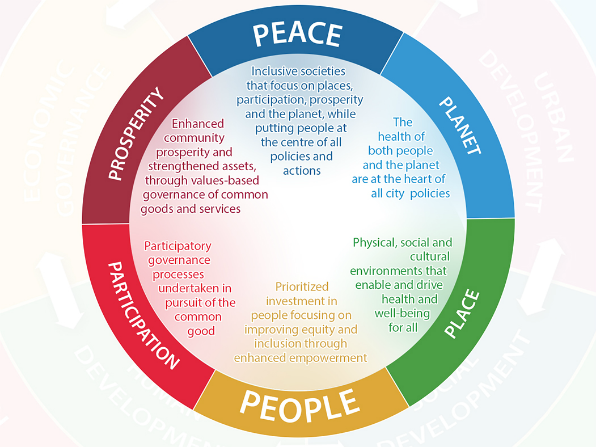
Take note of the line ‘Participatory governance processes undertaken in pursuit of the common good’. I read this as dictating that corporations, charities and the public sector work in partnership to achieve the objectives. Could National Opinion Polls also be used as a 'tool' to misrepresent public opinion in relation to the popularity of Tobacco Control Policies?
Measuring The Popularity Of Smokefree Workplaces In 2008
In 2008 the Guardian reported that:
Action on Smoking and Health (Ash) commissioned YouGov to explore public attitudes in detail, as part of a report on the next steps for tobacco control, Beyond Smoking Kills. Our first finding was that support for last year's ban is higher than ever. It had already grown from 51% in 2004, before the legislation was debated, to 72% before the ban took effect. It has now climbed further, to 77%. Even smokers now favour the ban.
So we have ASH, funded almost entirely by taxpayers money, commissioning a polling organisation YouGov, itself with strong links to government, producing the precise results that Government wants to hear.
Measuring The Popularity Of Proposals To Ban Tobacco Displays In 2010
It appears that another YouGov survey commissioned by Cancer Research UK interviewed 1,106 adults in Britain using an online survey between 22nd and 23rd July 2010. It found that 73 per cent of British adults over 18 supported putting tobacco products out of sight of shops to protect children. It also found that 77 per cent of adults supported getting rid of cigarette vending machines completely in the UK to protect children.
In this case we have CRUK, itself receiving generous tobacco control funding from Government, again commissioning YouGov and unsurprisingly again producing the desired result for Government.
Peter Kellner, YouGov And Common Purpose
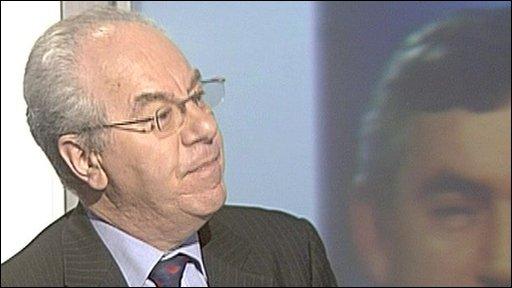
It was no surprise to discover that Peter Kellner, President of YouGov and husband of Baroness Ashton (Deputy President of Europe), is associated with Common Purpose and has also appeared in their promotional videos. Here's just one example. He was also chair of the editorial board of the report 'Beyond Smoking Kills' whilst his polling company YouGov was conducting the survey to measure public attitudes commissioned by ASH.
The proximity of these individuals to each other and to Government has more than an unpleasant smell about it. Skewed public consultations and rigged opinion polls appear more than likely to have been two tools selected by the High Level Decision Makers at the WHO Futures Forum when they considered foisting their unpopular decisions in Public Health on an unsuspecting public.
Those pursuing such policies are doing so through Partnerships, part funded presumably from the £10 Billion per annum collected by HM Customs and Excise from Tobacco Consumers. Is this why Julia Middleton, CEO of Common Purpose so enthusiastically embraced the definition of partnership as being 'the suppression of loathing in the pursuit of funding', I wonder?
The Cost To Retailers Of Modifying Tobacco Displays
Emails released under the Freedom of Information Act also reveal how Action on Smoking & Health (ASH), Cancer Research UK (CRUK) and the Department of Health briefed MP's and Peers with unrealistically low estimates of the cost to retailers and continued to do so even after their own source had made them aware of their error. This information has been documented in a short report by author and journalist Chris Snowden. The Dark Market: How Action on Smoking & Health and the Dept for Health Misled MPs about the tobacco display ban. A summary can be viewed on his blog.
The NuCoalition Government's Contempt For Democratic Process
In a speech delivered in May, Nick Clegg promised that the coalition Government would 'introduce the biggest shake up of our democracy since the 1832 Great Reform Act'. As we tear through the statute book, we'll do something no government ever has: we will ask you which laws you think should go'.
Demonstrating clear contempt for the British public Nick Clegg announced, shortly after the introduction of the YourFreedom consultation, that "Whilst the Government will be considering some ideas very actively straight away - such as looking at the vetting and barring scheme, the DNA database and the use of CCTV.....Of course there are other suggestions which aren't going to be taken up by this government... the introduction of the death penalty or changing the smoking ban".
In a separate report on 3rd August, 2010 the Daily Mail told readers of the Coalition's internet consultation sham as Ministers reject every single suggestion
Deputy PM Nick Clegg & The UN
In 2010 it was reported on the Gov.UK website that
Following a meeting with philanthropist Bill Gates, deputy prime minister Nick Clegg said the coalition government was looking forward to "a close and productive relationship" with the Bill and Melinda Gates Foundation in working towards the Millennium Development Goals and restated the UK's commitment to funding them.....Clegg confirmed that he will be representing the UK at the Millennium Development Goals Summit at the United Nations in September.
Vince Cable & The Brundtland Commission
In an earlier section we have already discussed the influence of Gro Harlem Brundtland on Global Tobacco Control
In an Independent report published in March 2008 Vince Cable was asked, 'How do you reconcile a commitment to continued economic growth with claims to want to tackle climate change? ' Cable responded:
I helped, 20 years ago, to produce the Brundtland report Our Common Future which launched the concept of 'Sustainable development.
Lessons From History
The tone of this new Coalition Government also has the ring of dictatorship about it. Perhaps this should be considered against the facts presented in the article The anti-tobacco campaign of the Nazis: a little known aspect of public health in Germany, 1933 - 1945. Its' author tells us that
Historians and epidemiologists have only recently begun to explore the Nazi anti-tobacco movement. Germany had the world's strongest anti smoking movement in the 1930s and early 1940s,encompassing bans on smoking in public spaces, bans on advertising,restrictions on tobacco rations for women, and the world's most refined tobacco epidemiology.....The anti-tobacco campaign must be understood against the backdrop of the Nazi quest for racial and bodily purity, which also motivated many other public health efforts of the era.
The Coalition Government's apparent obsession with obesity, smoking, alcohol, diet and physical exercise appears to me to be a similar quest for bodily purity. The parallels are chilling.
In following articles in this series I will show you why it doesn't matter which Political Party or combination of Parties forms our Government in Westminster. Your vote merely changes the colour of Government it has absolutely no effect whatsoever on policy which has already been decided elsewhere.
According to Gartnier & McNeil 'full implementation of the Framework Convention on Tobacco Control (FCTC) will result in a 'new world order' in tobacco control'.
Destruction cometh; and they shall seek peace, and there shall be none. Mischief shall come upon mischief, and rumour shall be upon rumour; then shall they seek a vision of the prophet; but the law shall perish from the priest, and counsel from the ancients. The king shall mourn, and the prince shall be clothed with desolation, and the hands of the people of the land shall be troubled: I will do unto them after their way, and according to their deserts will I judge them; and they shall know that I am the LORD - Ezekiel 7:25
Main article image: Free Images (CC BY 2.0)

